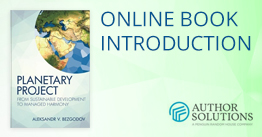CRITICISM OF THE CONCEPT OF SUSTAINABLE DEVELOPMENT
Life has shown, however, that the attempts to implement the Concept of Sustainable Development have not been sufficiently radically successful to make it a pivotal moment in resolving global problems, and taking the modern world out of the current civilization crisis. On the contrary, they have run into problems that have proved to be partially or entirely unsolvable, at least using the Concept and strategies of sustainable development. Almost twenty years have passed since modern global institutions officially set out on the course towards sustainable development, and no single economic, environmental or social policy model has been elaborated. Global problems have only accumulated.
The demographic, poverty and environmental problems are among the most noticeable, complex and widespread issues in the implementation of the strategy of sustainable development.
Thus, the contradictions, identified in the course of sustainable development concept implementation, demonstrate its internal logical paradox. The incompatibility of national interests to global human interests is one of the main contradictions. Acknowledging the Concept of Sustainable Development, we must repeat that the failures and difficulties of its endorsement cannot only be explained by practical barriers, but are rooted in its ideology. This concerns the very theoretical-methodological foundations of the Concept of Sustainable Development.
CRITICISM OF THE CONCEPT OF SUSTAINABLE DEVELOPMENT (Page II)
The Planetary Project criticism of the Concept of Sustainable Development develops in the following directions:
- The incorrectness of the term “sustainable development” and its internal logical contradiction.
- The narrowness of the term and the provocative tendency to confine global problems to the environmental context. Many scholars, politicians, social activists and industrialists believe that environmental protection issues cover the entire sustainable development strategy.
- The absence of a single concept of sustainable development, with multiple concept definitions causing considerable implementation difficulties.
- The selectivity of the Concept of Sustainable Development, its original elitism and imperialist character. There is an opinion that the implementation of the concept of sustainable development can only bring benefits to a certain part of humanity rather than to all people.
- The controversial character of several methods used by the Concept of Sustainable Development. The extrapolar modelling used as part of the Concept of Sustainable Development is not a final verdict: we must understand that the predictions made based on it will materialize unless humanity, all other things being equal, changes its resource consumption policy. If the necessary corrections are introduced, the predicted collapse can be avoided.
- The diversity in understanding the goals of sustainable development, naturally arising from the different worldviews of the participants implementing a new civilization model, and countries and people representing cultural, social and political diversity.
Without doubt, The Concept of Sustainable Development goals are aimed at creating a just and balanced world design. Nevertheless, we must not forget that different countries, scholars and politicians interpret “justice” and “balance” differently. The very question of humanity’s and individual nations’ readiness for global integration, which will require a major transformation of their political and economic systems, is quite controversial. It has a historical character, and concerns the actual basis of civilizational and evolutionary maturity of modern Homo sapiens; it encompasses cultural issues, man’s moral-ethical self-identification, reasonableness and responsibility. - In light of the above, we must note that the main target of criticism of the Concept of Sustainable Development (unless this criticism is provided for the sake of criticism, rather than as the basis of further development and evolution of the initial concept) must include the absence of systemic implementation mechanisms organisationally and financially underwritten.
CRITICISM OF THE CONCEPT OF SUSTAINABLE DEVELOPMENT (Page III)
Thus, in any case, both the critics and followers of the Concept of Sustainable Development are united in believing that transition to sustainable development requires dramatic transformation of the current civilization, the core of which is the environmentalisation of all major human activities. What is meant here is a noospheric re-orientation of public consciousness: it must be possible technologically, and acceptable socially, to transition from hydrocarbon energy industry and economy to those based on alternative sources of energy. This step could usher in a new era in human development, a step to a new kind of civilization. A lot of work is needed to accomplish this task and colossal financial resources. However, the concept of sustainable development says nothing about the sources of funding, nor does it talk about the mechanisms of its implementation. This is exactly where the root is of the theory’s current lameness and indefensibility; and why it is time that we stopped deliberating and expounding slogans, and turned to real actions because we do not have much time left to save the world.









